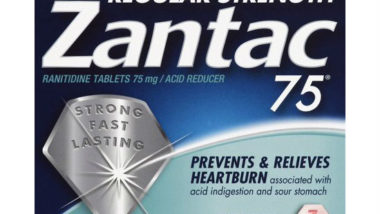 Despite the link between long term PPI use and kidney disease, many continue to use these drugs long term.
Despite the link between long term PPI use and kidney disease, many continue to use these drugs long term.
Proton pump inhibitors (PPIs) such as Nexium, Prilosec, and Prevacid are anti-acid drugs used to treat a variety of gastric conditions. There are both prescription and over the counter versions of these drugs available. Millions of patients take these drugs around the world, with some people taking the drugs long term.
Unfortunately, these drugs are reportedly associated with an increased risk of health complications such as kidney disease. In 2015, Australia launched national campaigns to curb the use of PPI drugs and inform people about the risks.
According to a recent Australian study, the link between long term PPI use and kidney disease has not deterred consumers from using the products. The national studies have reportedly not had a notable effect, according to researchers from the UNSW Medicine’s Centre for Big Data Research in Health.
Since the country’s initiatives, the monthly use of PPI drugs has reportedly only declined 1.7 percent. Additionally, the study found that there has been a trend of patients stopping treatment or switching to a lower dosage.
Although these results may be disheartening, UNSW researchers say that these results are not surprising. Intense interventions are usually required to influence the behaviors of doctors and patients so the study author had no expectations of a large change.
Research on the impact of new policies and education campaigns will reportedly continue as the Australian government introduced restrictions and other measures to decrease the risk of PPI-related side effects.
“PPIs are safe in the short-term, effective and generally well tolerated,” an Australian researcher said. “But there are growing concerns about taking these medicines longer than is clinically necessary.”
Long Term PPI Use and Kidney Disease
The long term use of PPI drugs has been associated with a variety of problems including kidney disease.
In February 2017, a study published in JAMA noted that PPI drugs were associated with an increased risk of chronic kidney disease. Patients who took the drugs were reportedly at a 20 to 50 percent increased risk of chronic kidney disease.
The researchers in this study called for further study of the problem. Since then, this risk has reportedly been corroborated by further studies.
In March 2019, a study by University at Buffalo researchers showed that patients who take PPI drugs may result in a serious risk increase when it comes to kidney disease and failure. In PPI drugs, the risk for kidney disease reportedly increased by 20 percent while the risk of kidney failure was increased fourfold when compared to patients who hadn’t taken the drug.
“This study adds to a growing list of concerning side effects and adverse outcomes associated with PPIs,” one co-author said in a press release. “Given the increasing global use of PPIs, the relationship between PPIs and renal disease could pose a substantial disease and financial burden to the health care system and public health.”
If you or someone you know took PPI meds and suffered from Nexium stomach cancer or were hospitalized for Nexium kidney problems, you may qualify to file a Nexium lawsuit to pursue compensation for medical bills, pain and suffering, and more. See if you qualify for a Nexium lawsuit settlement by filling out the short form on this page. It’s absolutely free to participate, so act now!
ATTORNEY ADVERTISING
Top Class Actions is a Proud Member of the American Bar Association
LEGAL INFORMATION IS NOT LEGAL ADVICE
Top Class Actions Legal Statement
©2008 – 2025 Top Class Actions® LLC
Various Trademarks held by their respective owners
This website is not intended for viewing or usage by European Union citizens.
Get Help – It’s Free
Join a Free Prilosec, Nexium Lawsuit Investigation
If you qualify, an attorney will contact you to discuss the details of your potential case at no charge to you.
PLEASE NOTE: If you want to participate in this investigation, it is imperative that you reply to the law firm if they call or email you. Failing to do so may result in you not getting signed up as a client or getting you dropped as a client.
E-mail any problems with this form to:
[email protected].
Oops! We could not locate your form.












